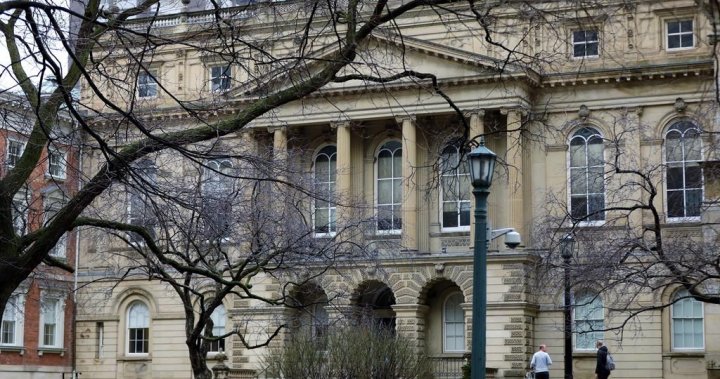Ontario’s top court is set to rule today on the constitutionality of a law that limited raises for more than one million workers in the broader public sector, including nurses and teachers.
The Progressive Conservatives enacted the law, known as Bill 124, in 2019 as a way to help the government eliminate a deficit.
It capped salary increases for public sector workers to one per cent a year for three years.
The law sparked widespread outrage among labour groups and opposition parties, with its effects on the health sector a particular focus as critics say it’s partly responsible for driving nurses out of the profession or into private nursing agencies, where the pay is substantially higher for the same work.
Labour groups and unions representing hundreds of thousands of public sector employees challenged the law, and the Ontario Superior Court in late 2022 found it infringed collective bargaining rights, striking it down as unconstitutional.
The government appealed and the Appeal Court says its decision will be released today.
Get the latest National news.
Sent to your email, every day.
Since the law was struck down, even while pending appeal, arbitrators have awarded additional retroactive pay to several groups of workers that had “reopener” clauses in their contracts, including teachers, nurses, other hospital workers, public servants, ORNGE air ambulance paramedics, and college faculty.
Several hospitals have told a legislative committee conducting pre-budget hearings that the Bill 124 reopener arbitration rulings are straining their budgets, though the government has committed to reimbursing them.
“Bill 124 settlements are driving hospitals into extraordinary cash flow difficulties, threatening our financial viability and forcing delay of critical capital purchases,” Sherri McCullough, board chair of Kingston Health Sciences Centre, told the committee last month.
Ontario’s financial accountability officer said in 2022 that Bill 124 was set to save the province $9.7 billion on public-sector salaries and wages, though a successful court challenge would all but wipe that out.
That could cost the province $8.4 billion over five years, he said.
Though the 2019 law was time limited for a three-year period, it is still affecting collective bargaining now because of when some previous contracts expired and the length of some negotiations.
Ontario Provincial Police recently started bargaining for a new contract, which would be subject to Bill 124 if the law was in force.
As well, the province’s correctional officers late last year received increases of 9.5 per cent over three years after Bill 124 was struck down partway through their bargaining process.
Whichever way the Appeal Court ruling goes, one of the sides may seek leave to appeal at the Supreme Court.
© 2024 The Canadian Press




